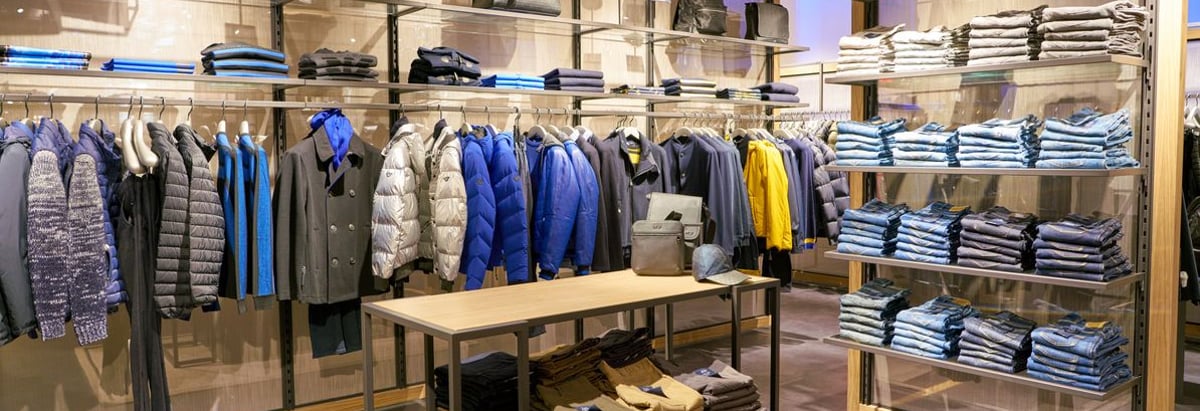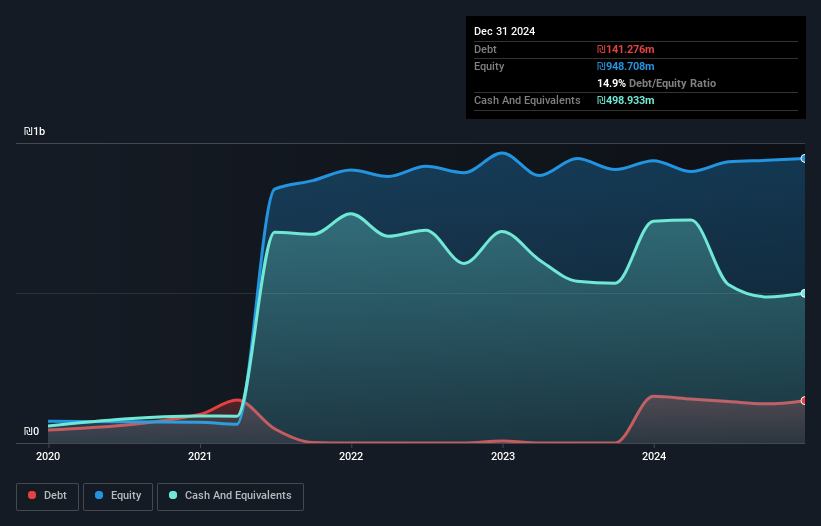- Israel
- /
- Specialty Stores
- /
- TASE:RTLS
These 4 Measures Indicate That Retailors (TLV:RTLS) Is Using Debt Reasonably Well

Howard Marks put it nicely when he said that, rather than worrying about share price volatility, 'The possibility of permanent loss is the risk I worry about... and every practical investor I know worries about.' So it seems the smart money knows that debt - which is usually involved in bankruptcies - is a very important factor, when you assess how risky a company is. We can see that Retailors Ltd (TLV:RTLS) does use debt in its business. But is this debt a concern to shareholders?
Our free stock report includes 2 warning signs investors should be aware of before investing in Retailors. Read for free now.When Is Debt A Problem?
Debt and other liabilities become risky for a business when it cannot easily fulfill those obligations, either with free cash flow or by raising capital at an attractive price. In the worst case scenario, a company can go bankrupt if it cannot pay its creditors. While that is not too common, we often do see indebted companies permanently diluting shareholders because lenders force them to raise capital at a distressed price. Of course, the upside of debt is that it often represents cheap capital, especially when it replaces dilution in a company with the ability to reinvest at high rates of return. The first thing to do when considering how much debt a business uses is to look at its cash and debt together.
How Much Debt Does Retailors Carry?
The image below, which you can click on for greater detail, shows that Retailors had debt of ₪141.3m at the end of December 2024, a reduction from ₪155.5m over a year. But it also has ₪498.9m in cash to offset that, meaning it has ₪357.7m net cash.

A Look At Retailors' Liabilities
We can see from the most recent balance sheet that Retailors had liabilities of ₪778.3m falling due within a year, and liabilities of ₪1.33b due beyond that. Offsetting these obligations, it had cash of ₪498.9m as well as receivables valued at ₪147.0m due within 12 months. So its liabilities outweigh the sum of its cash and (near-term) receivables by ₪1.46b.
This deficit isn't so bad because Retailors is worth ₪3.87b, and thus could probably raise enough capital to shore up its balance sheet, if the need arose. But it's clear that we should definitely closely examine whether it can manage its debt without dilution. Despite its noteworthy liabilities, Retailors boasts net cash, so it's fair to say it does not have a heavy debt load!
View our latest analysis for Retailors
If Retailors can keep growing EBIT at last year's rate of 19% over the last year, then it will find its debt load easier to manage. The balance sheet is clearly the area to focus on when you are analysing debt. But it is Retailors's earnings that will influence how the balance sheet holds up in the future. So when considering debt, it's definitely worth looking at the earnings trend. Click here for an interactive snapshot.
Finally, while the tax-man may adore accounting profits, lenders only accept cold hard cash. While Retailors has net cash on its balance sheet, it's still worth taking a look at its ability to convert earnings before interest and tax (EBIT) to free cash flow, to help us understand how quickly it is building (or eroding) that cash balance. During the last three years, Retailors generated free cash flow amounting to a very robust 98% of its EBIT, more than we'd expect. That positions it well to pay down debt if desirable to do so.
Summing Up
While Retailors does have more liabilities than liquid assets, it also has net cash of ₪357.7m. The cherry on top was that in converted 98% of that EBIT to free cash flow, bringing in ₪246m. So we don't have any problem with Retailors's use of debt. There's no doubt that we learn most about debt from the balance sheet. But ultimately, every company can contain risks that exist outside of the balance sheet. For example - Retailors has 2 warning signs we think you should be aware of.
If you're interested in investing in businesses that can grow profits without the burden of debt, then check out this free list of growing businesses that have net cash on the balance sheet.
New: AI Stock Screener & Alerts
Our new AI Stock Screener scans the market every day to uncover opportunities.
• Dividend Powerhouses (3%+ Yield)
• Undervalued Small Caps with Insider Buying
• High growth Tech and AI Companies
Or build your own from over 50 metrics.
Have feedback on this article? Concerned about the content? Get in touch with us directly. Alternatively, email editorial-team (at) simplywallst.com.
This article by Simply Wall St is general in nature. We provide commentary based on historical data and analyst forecasts only using an unbiased methodology and our articles are not intended to be financial advice. It does not constitute a recommendation to buy or sell any stock, and does not take account of your objectives, or your financial situation. We aim to bring you long-term focused analysis driven by fundamental data. Note that our analysis may not factor in the latest price-sensitive company announcements or qualitative material. Simply Wall St has no position in any stocks mentioned.
About TASE:RTLS
Adequate balance sheet and slightly overvalued.
Market Insights
Community Narratives



